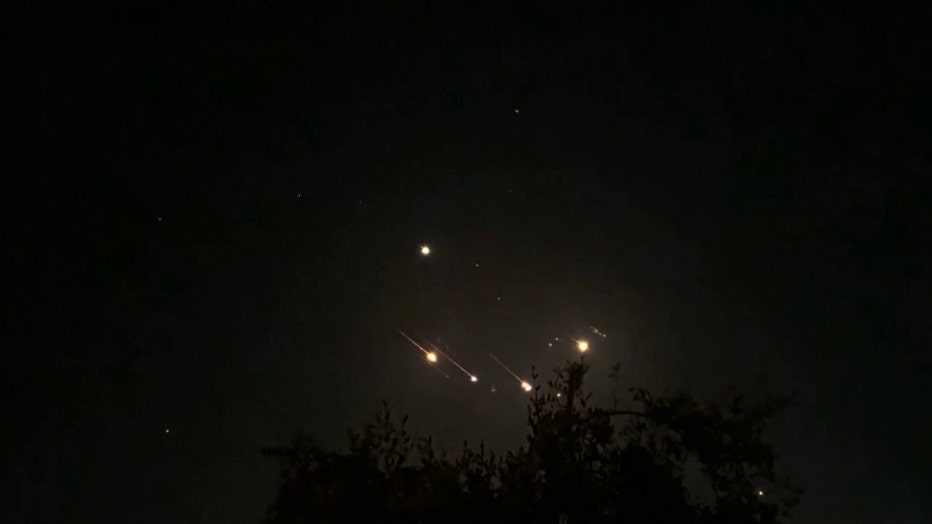Iran missile attack spotlights Israel’s missile defense system – including ‘Iron Dome’
TAMPA, Fla. - All eyes are on Israel following a barrage of drone and missile attacks by Iran over the weekend, as military and foreign policy experts weighed in on the success of Israel's defense system.
Israel, with the assistance of several countries – including the U.S. – fended off more than 300 drones and missiles launched at Israel from Iran, with the Israeli Defense Forces claiming roughly 99% of the attack didn't make it through Israel's defenses.
"To launch this kind of attack was an unprecedented signal of how far this regime might be willing to go. And it's very dangerous," said Elana Broitman, the former deputy assistant secretary of defense for manufacturing and industrial base policy who also spent time working in the U.S. House of Representatives and Senate. "Iran clearly communicated its intentions for days before it happened, and so it was not a surprise attack. So Iran was sending a message rather than perhaps delivering a true kill, as dangerous as that was."
RELATED: Iran's attack on Israel largely intercepted
Experts have described Israel's defense as a layered approach to prevent an air assault.
The upper layers, called "Arrow" systems, can stop missiles outside Earth's atmosphere. The next layer, known as "David's Sling," is designed to take intercept mid-range missiles, similar to many of the ones fired over the weekend. Finally, Israel's well-known and successful Iron Dome can take out short-range rockets and artillery.
Broitman, who now works for The Roosevelt Group, which is a private communications company with a government and military focus, worked at the Pentagon as Israel developed its missile defense program in the early 2000s.
PREVIOUS: Iran attacks Israel: Understanding Israel's defense system
"It's a real boost not only to Israel's security, but to the U.S. defense industrial base since there's a very, very strong U.S. company presence in those systems," Broitman told FOX 13 Monday.

IDF officials have said only five missiles fired by Iran made it through and caused minimal damage.
Israeli and U.S. aircraft stationed nearby intercepted nearly all 170 drones and dozens of missiles before they ever entered Israeli territory. Broitman said it was encouraging to see Israel receive support from other nations, including Egypt and Jordan.
READ: Why Iran wants to attack Israel: The history of the conflict explained
"It is a showcase of U.S. and Israeli military capacity that is as important as a symbol and a signal as it is for the work that it did in ensuring civilian safety over the weekend," she said. "I also thought it very interesting and encouraging that it wasn't just the U.S. standing with Israel at the time, but there were other Arab countries supporting, over the weekend."
Retired U.S. Air Force Col. E.J. Otero explained how the U.S. often helps Israel with more than military aid.
"Even if the United States keeps it at a verbal position of, 'we are behind our brothers, the State of Israel, we are supporting the State of Israel as they try to defend itself,' and that sort of thing and that's all it does, it is pretty strong," said Otero, the former head of intelligence at U.S. Central Command at MacDill Air Force Base and current national security consultant for Gemini Industries.
Otero said the question now is how will Israel respond?
"At the same time that all this is going on, all the military chess pieces are positioning themselves. There's also the diplomatic piece, the diplomatic pressures from the countries in the region and the diplomatic pressure is against, or for, Israel," Otero explained.
WATCH FOX 13 NEWS:
SIGN UP: Click here to sign up for the FOX 13 daily newsletter

